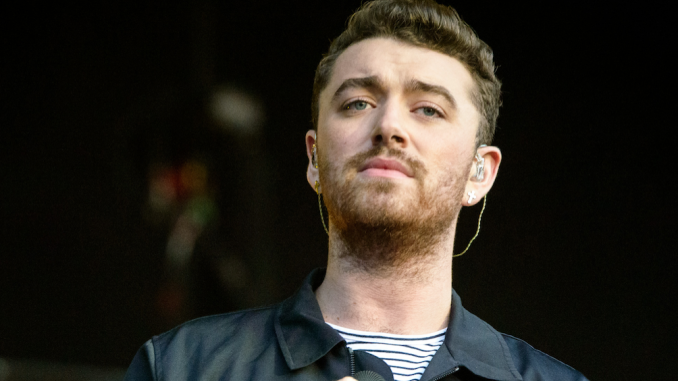
The refrain of “Too Good at Goodbyes” pretty succinctly sums up Sam Smith’s recent career as a blue-eyed soul superstar: “I’m never gonna let you close to me/Even though you mean the most to me.”
Smith is nothing if not a passionate soul singer, dynamic and talented enough to tackle a genre marked by some of the greatest singers in recorded music history. Too often, however, his music remains at arm’s length with its inspirations. His sophomore album, The Thrill of It All, never plays or experiments with soul or R&B formulae, and it’s all the more cold and distant because of it.
Many of the pillars of soul music—Marvin Gaye’s What’s Going On, Smokey Robinson’s A Quiet Storm, Curtis Mayfield’s Superfly—stood as far more than just testaments to their singers. Instrumentally, they had depth and nuance, each instrument individually interesting but collectively grander than their parts. They were their own tapestry, not simply a canvas justifying a singer showcase; The Thrill of It All is not much more than a singer showcase, and not even Smith’s soaring voice can do much for material that’s already so flat. Take the aforementioned “Too Good at Goodbyes,” the album’s first track and debut single. As Smith slickly weaves in and out of his falsetto, he’s backed by cheap, synthesized strings, snap percussion and a shockingly low-impact gospel choir.
One of my favorite songs of this decade so far is “Sacrilege” by Yeah Yeah Yeahs, a busy, epic piece of rock music that explodes into intense gospel chants in its final act. That final act transfixed me when I first listened, even as every instrument dropped out of frame to leave just the choir and the emptiness around them. It’s a song that builds masterfully, knowing precisely where to place its motley mixture of musical elements.
“You can never go wrong with a gospel choir,” I thought to myself.
But The Thrill of It All does, in fact, go wrong with a gospel choir. Gospel backing vocals are a recurring tool on The Thrill of It All, used ad nauseum in what feels like an attempt to artificially inflate the scale of these songs. “Too Good at Goodbyes” and “Burning” opt to use the gospel choir as an effect rather than a genuine instrument; the vocals all sound compressed and monochromatic, slapped on the song rather than built into it. The tragic first-person narrative of “HIM” pairs well with Smith’s emotive vocals, but when it decides to dramatically ramp up in intensity, its gospel vocals are mixed too far into the background to give it the gravitas it needs. The album closer, “Pray,” given its religious themes and sense of finality, wears its gospel elements most appropriately; still, by the time “Pray” even begins, the gospel gimmick has worn far too thin.
The Thrill of It All, when not overworking some poor gospel choir half to death, tries its hand at a scattershot collection of soul and R&B styles. “One Last Song” is Smith’s take on Ronettes-esque pop-soul, and “Baby, You Make Me Crazy” builds off of old-school Van Morrison. Neither work particularly well, but they do break up the monotony of Smith’s gloomy ballads. “No Peace” is the standout song here, a duet between Smith and relative newcomer YEBBA. Where a duet might normally seem obligatory, “No Peace” has more human feeling in it than anything else on the album, and YEBBA is more than a vocal match for Smith. It speaks volumes that he took a risk on an unknown partner rather than settle for a more famous counterpart, and it pays off, as YEBBA provides a better foil for Smith’s voice than any of the instrumentals on this track.
The Thrill of It All goes a step further than its predecessor, 2014’s In the Lonely Hour, in establishing Smith’s talents as a singer. His performances here are leagues ahead of what he was doing in 2014, but his talents are done little justice by tepid sound mixing and formulaic song structures. Listening to The Thrill of It All, then, is not unlike watching a brilliant singer perform on a bargain karaoke machine: it’s not terrible, but there has to be a better karaoke bar in town.
